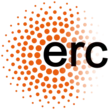Optimization, Learning, and Market Design
Market design uses economic theory, mathematical optimization, systems design, experiments, and empirical analysis to design market rules and institutions. Fundamentally, market design asks how the design of the rules and regulations of a market affects the functioning and outcomes of that market. The study includes auction markets, but also markets without money such as matching markets, which found application in the assignment of students to courses or in school choice programs. We are contributing to various strands in this literature including optimization in market design, equilibrium computation, mechanism design, and experiments.
Current Team: Prof. Dr. Martin Bichler, Dr. Halil I. Bayrak, Janik Buergermeister, Teodora Dobos, Julius Durmann, Markus Ewert, Kassian Köck, Laura Mathews, Matthias Oberlechner, Fabian R. Pieroth.
Application Domains
In the past we have actively contributed to the following application domains:
- Electricity market design (e.g. our contributions to the SynErgie project).
- Spectrum auction design (e.g. Handbook of Spectrum Auction Design)
- Design of environmental markets (e.g., the implementation of a large scale combinatorial exchange for the trading of catch shares in Australia, PNAS article, video).
- Design of a course assignment mechanism (e.g. the matching system used at the Technical University of Munich)
- Design of procurement auctions and transportation tenders with industry partners (various industry projects in transportation and procurement, winner of the Siemens SCM Olympics).
Recent Software on Learning in Games
We have open-sourced several software packages. An overview can be found on our github page [TUM-DSS].
Our most recent releases include code for equilibrium learning: bnelearn and soda find Bayes-Nash equilibria in auctions, while DLR-in-multi-stage-games finds equilibria in sequential games with continuous state and action spaces.
- DRL-in-multi-stage-games [ github ]
Publication: M. Bichler, N. Kohring, F. R. Pieroth. Deep Reinforcement Learning for Equilibrium Computation in Multi-Stage Auctions and Contests. Management Science, accepted April 2025 [ arXiv ] - soda [ github ]
Publication: M. Bichler, M. Fichtl, M. Oberlechner. Computing Bayes–Nash Equilibrium Strategies in Auction Games via Simultaneous Online Dual Averaging. Operations Research 73(2):1102-1127, Dezember 2023 [ DOI ] - bnelearn [ docs | github ]
Publication: M. Bichler, M. Fichtl, S. Heidekrüger, N. Kohring, and P. Sutterer. Learning equilibria in symmetric auction games using artificial neural networks. Nature Machine Intelligence 3:687–695, August 2021. [ DOI | link | pdf ]
Below are our most recent projects.
Advanced Grant (European Research Council)
Equilibrium Learning, Uncertainty, and Dynamics

Market interaction is increasingly automated by artificial learning agents. Examples include pricing agents in electronic retail or bidding agents in display-advertising auctions. The economic properties of such systems are still poorly understood. In general, learning procedures in game-theoretic problems can exhibit cyclic behavior or even lead to chaotic dynamics. In the ELUD research project, Martin Bichler and his team addresses the question of if and when learning agents converge to an efficient equilibrium and when this is not the case. Based on successful prior work, ELUD will design new algorithms for computing equilibria. Characterizing such learning algorithms in game-theoretic problems under uncertainty requires the development of formal methods at the intersection of computer science, mathematics, and economics.
Research Training Group AdONE (German Research Foundation, DFG)
Advanced Optimization in a Networked Economy

The PhD program AdONE is jointly hosted by the Department of Computer Science, and Department of Mathematics and the School of Management, at TUM. We are funded by the German Science Foundation (DFG) as a "Research Training Group". Our work is at the intersection of mathematics, computer science, and management science, driven by exciting applications such as airport operations, auction mechanisms for network procurement, autonomous mobility, carsharing systems, production planning, vehicle routing, warehousing & e-commerce.
Transfer Project (DFG, FhG, Tennet)
Allocation and Pricing on Electricity Markets

APEM aims to develop models and simulators to analyze pricing rules on electricity spot markets. We want to derive prices that best reflect marginal costs on a network node in a coupled electricity market with non-convex preferences of participants. This question has regained interest due to the strongly increasing levels of renewable energy sources, which have different cost characteristics. We want to explore the impact of different approximations and convex relaxations of the underlying power flow problem on prices and compare such nodal prices to the zonal prices currently used in Europe. While the fundamental question of pricing in non-convex markets has received significant attention in the literature, the specifics of coupled electricity markets (e.g., transmission constraints between nodes) provide new challenges for fundamental research that have often been ignored. We want to understand the scope for which the welfare theorems hold in such markets and to which extent envy-freeness and budget balance can be satisfied in coupled and non-convex markets.
Kopernicus Project SynErgie
Electricity Market Design for the Future
The project aims to design electricity markets for a future with large amounts of renewable energy sources. The energy transition requires us to rethink mathematical models for efficient dispatch and pricing of electricity on wholesale markets.
Koselleck Project (German Research Foundation, DFG)
Designing Non-Convex Markets

This project develops mathematical models for non-convex markets as they can be found in spectrum sales, the trading of fishery access rights, in electricity markets, etc.